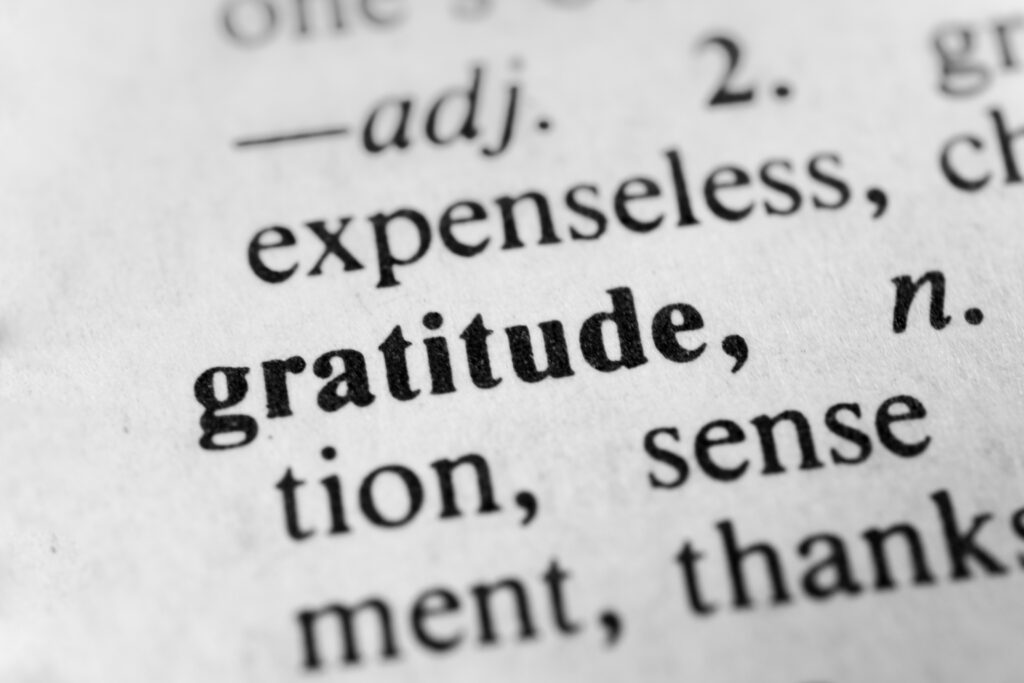
Balancing gratitude with authenticity is crucial for resilience, especially in the journey of raising a child with autism. Focusing solely on gratitude can lead to emotional exhaustion when challenges are left unacknowledged, as it masks the reality of difficult experiences. A more effective approach involves embracing both struggles and moments of gratitude, allowing space for the full range of emotions. This balance fosters greater peace, self-compassion, and strength, demonstrating that resilience comes from honouring both joy and hardship.
Guest post by Farnoush Davoudi, mother of an Autistic girl.

Not long after my daughter’s diagnosis, I realized that I needed to stay strong and positive so I could be there for her on the tough road ahead. The gratitude trend in the autism community inspired me and I tried to follow it. I made it my mission to become one of those parents who celebrated every small victory and admired the wonderful qualities in their children. I was determined to harness the power of positive thinking to manage stress, anxiety, and depression while finding more joy and contentment as an autism parent.
I bought a gratitude journal and started writing down every silver lining I could find in my daughter’s behaviors and learning challenges—rubbing my “strength and positivity” in autism’s face! But to my surprise, the more I pushed myself to be grateful, the more miserable I felt.
My journal was filled with positive and reflective words, yet each day brought new struggles—sensory overloads, meltdowns, and communication barriers. I was experiencing emotional build-up, becoming irritable, short-tempered, and withdrawn. The internal tension building inside me made journaling increasingly difficult. I wanted to scream that everything was NOT fine, but I couldn’t bring myself to break the façade—even in the privacy of my own journal. Worst of all, the guilt of “not being grateful enough” weighed on me constantly.
One day, completely overwhelmed, I collapsed onto my therapist’s couch in tears and admitted, “I feel guilty for not appreciating what I have, but I’m so overwhelmed that it’s hard to feel thankful at all.” That day, I learned about gratitude masking: focusing exclusively on positive expressions to avoid acknowledging difficult feelings. It’s a coping mechanism that can provide temporary relief but can also lead to unintended consequences—just as I was experiencing.
My therapist explained how by fixating solely on gratitude, I left no space for the tough emotions I was too uncomfortable to face. I was drained from constant vigilance and how my anxiety about my daughter’s future often kept me up at night. But instead of addressing the frustration, loneliness, and sadness bubbling beneath the surface, I used gratitude as a shield to avoid confronting those feelings. As a result, my gratitude journal became a tool to pressure myself into positivity, even when I was mentally and physically exhausted.
As my therapist and I worked on acknowledging all emotions, setting realistic expectations for gratitude, talking openly about struggles, and practicing self-compassion, she suggested a simple yet profound strategy: divide my journal page into two columns.
One column for “Challenges” to vent frustrations.
Another for “Moments of Gratitude” to balance my perspective.
She also encouraged me to use prompts for emotional honesty, such as:
“What is something I struggled with today?”
“What is one thing I did well today?”
In the past, my journaling reflected almost forced positivity. I would write things like:
“I appreciate the opportunity to help my child through their meltdowns and other overwhelming situations. It’s a reminder of how strong our bond is and how much I can handle.”
Now, my entries are more balanced and authentic:
“Helping my child through their meltdowns is incredibly challenging and often leaves me feeling drained and overwhelmed. Still, I’m grateful for the small moments of connection we share afterwards and the strength I’ve developed through these experiences.”
“Today was incredibly challenging. I feel exhausted and frustrated. But I’m thankful for the peaceful walk I managed to take.”
This practice has brought me greater peace, balance, and authenticity in my journey. I invite you to do the same: hold gratitude in one hand and self-compassion in the other. Embrace the moments that bring you joy and comfort, but don’t shy away from acknowledging the struggles that shape your path.
Let this year be one of harmony, where gratitude and authenticity work together to bring you resilience and hope—even on the hardest days.